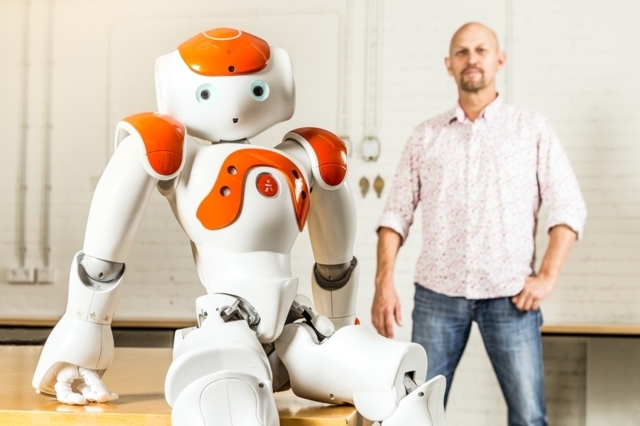What’s hot in Artificial Intelligence?
In September, six new English bachelor tracks will receive their first first-years. In this series, Vox wants to know what the hot research topics in these bachelors’ scientific fields are. This week: Artificial Intelligence.

‘Five years ago, when I talked about Artificial Intelligence, I first had to explain what it was’, says Louis Vuurpijl, bachelor study coordinator. ‘Now everybody has a smartphone and smart technology is booming. The job opportunities after finishing an Artificial Intelligence degree are very good.’ Vuurpijl says this is visible in the preliminary applications: ‘they are 120 percent higher than last year.’
So the decision to offer the bachelor track exclusively in English seems to have been a good one. The transition is not that hard, says Vuurpijl. ‘We have been offering English courses since 2002, and we have a very international staff.’ In ‘A.I.’, a lot of research topics are taking flight right now, according to him.
‘In society, robots and drones are becoming more and more popular. A lot of research is being done on computer vision and techniques for autonomous flight, for example to find and track a person without someone controlling it’, Vuurpijl explains. ‘Robots will be able to do some human tasks, like welcoming people at the front desk of a bank, or assisting people with a handicap. These are all things that scientists in Artificial Intelligence are hoping to accomplish.’
Augmented reality and virtual reality are also fields that get a lot of attention from scientists right now. ‘Augmented reality is, for example, a technique with which you can provide camera images with additional info, coming from a computer. It helps people understand what a camera shows them.’ Virtual reality is used in games a lot, in film and art, but also in research like novel cognitive-behavioral treatment of phobias. Persons can be trained in virtual situations that they would avoid in reality. A good example of it is the Oculus Rift, glasses that show you a different reality. Working with robots and with all these challenging new devices is something our students love to do.
With Web and Language technology, or Data science, researchers can analyze all kinds of things by looking at the way people talk on the Internet. An example of this is when researchers measured the faith people have in society through Twitter. The way people speak on social media says a lot about this. Another example is when, at Albert Heijn, customers use a Bonuskaart. The company can keep track of a person’s buying behavior. Vuurpijl: ‘A famous story about this is about a family receiving mail with advertisement for a pregnant person, based on that what they bought at Albert Heijn. Unfortunately, the pregnancy was not known to all the members of the family at that point.’
Then there is the brain research that researchers within the field of Artificial Intelligence conduct at the Donders institute. During research on Brain Computer Interfacing, brain signals are analyzed to see what a person wants to do, without that person expressing their will through speech or movement. ‘When attached to an EEG scanner, people should be able to control an electronic wheelchair or write a letter. Professors Desain and Farquhar are working on this a lot at Radboud University. This research could benefit a lot of groups in society, for example people who cannot interact well because of a muscle disease.’ / Jozien Wijkhuijs



